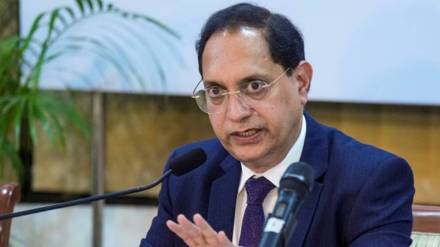The board of the Securities and Exchange Board of India (Sebi) will on December 17 take up the report of a high-level panel, which has recommended public disclosure of assets of senior officers to avoid conflict of interest, Chairman Tuhin Kanta Pandey said on Friday. He expressed hope that the board will endorse the recommendations.
Sebi’s high-level committee (HLC) submitted its report on Wednesday, suggesting stricter disclosures, investment controls, a new ethics office, a two-year cooling-off period for former officials, and mandatory recording of recusals to strengthen transparency and governance.
“The board will take a final call on the recommendations made in the report,” Pandey said after inaugurating the Sebi pavilion at the India International Trade Fair.
The HLC recommended a sweeping overhaul of the regulator’s conflict-of-interest framework to bolster governance, transparency and ethical conduct. The report proposes that the process begin at the pre-appointment stage, requiring candidates to disclose all actual, potential and perceived conflicts — financial and non-financial — to the appointing authority.
Once appointed, the Sebi chairperson and whole time members (WTMs) would be categorised as “insiders’’ under the Insider Trading Regulations, and for the first time are mandated to publicly disclose their assets and liabilities.
To address gaps highlighted in 2024 — when Sebi reported no records of then chairperson Madhabi Puri Buch’s recusals — the committee has proposed a digital repository to track disclosures and publish annual summaries of recusals.
To prevent misuse of personal investments, the panel has prescribed four options for handling pre-existing holdings — liquidation, freezing, sale under a pre-approved trading plan, or sale with prior approval. New investments by the top brass would be restricted to regulated pooled vehicles and capped at 25% of their portfolios. Part-time members may be exempt due to their limited operational role.
Pointing to gaps in ethics oversight, the committee has proposed setting up an Office of Ethics and Compliance (OEC), headed by an executive director, and supervised by an independent committee. Stricter rules on conduct include banning gifts to the chairperson and WTMs from anyone with official dealings, barring token items at public events. The whistleblower mechanism would be strengthened through independent handling of internal and external complaints.
The definition of “family’’ has been widened to include spouses, dependent children, wards and financially dependent relatives. A two-year cooling-off period has been recommended for former members and senior officials, who would also need to disclose ongoing employment negotiations before exiting Sebi.
